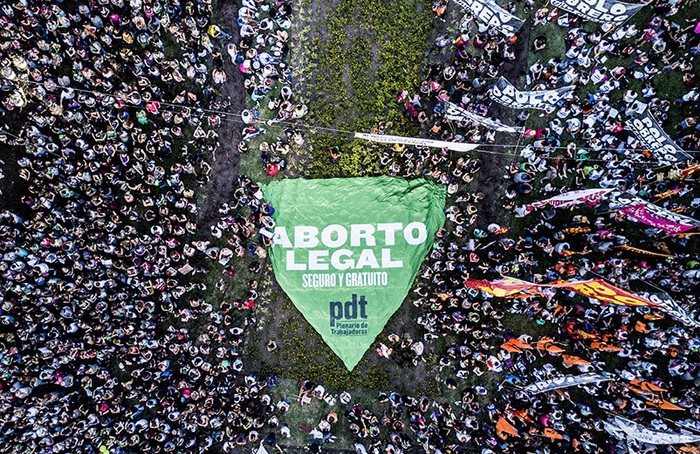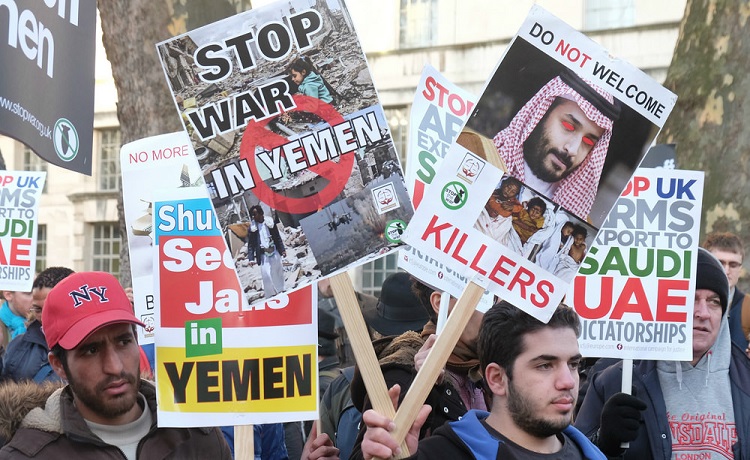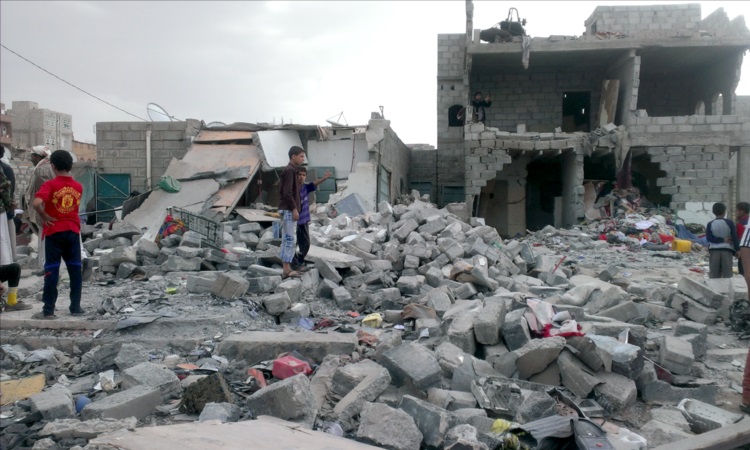The Week In World News | Argentina, airstrikes and abortion
The world moves fast. If you don’t stop and read the papers, you might just miss a few things. So with this in mind, let’s take you through a few of those global stories that you may have missed during the week.
Argentina
Argentina has rejected a bill to legalise abortion by a vote of 38-31 votes against it, with two abstentions. Up until the recently repealed Eight Amendment in Ireland, Argentina, homeland of Pope Francis, could have been considered as more liberal than us – allowing terminations in the cases of both rape and where a mother’s health is in danger.
Those two scenarios are the two depressing minimums required for women of the Latin American country to qualify for care. The decision to grant care is then primarily made by those who, unfortunately, hold no child-bearing capacity whatsoever. Not unlike Ireland’s recent history, such decisions are heavily grounded in the teachings of a Church, that isn’t supposed to know anything about sex, have ever experienced it, or known the sometimes consequences of it.
That’s what I’m told, but we’re all human, and not all virgins wear vestments.
According to an Amnesty International report, the leading cause of maternal mortality in Argentina over the past 30 years arises from illegal and unsafe abortions. Those who survive often face debilitating hemorrhaging and severe uterine infection.
A 50:50 investigative report by Diana Carboni says more than 354,000 abortions take place in Argentina each year, which result in 70,200 hospital admissions as a result of an unsafe procedure and 37 deaths.
However, the number of deaths arising from clandestine abortion is likely to be significantly higher. Argentina has recognised that statistics for maternal death are frequently underestimated due to deficiencies in the medical certification for the cause of death.

The same 50.50 report details the recent death of 22-year-old, Liliana Herrera, a mother of two young girls who died in a Santiago del Estero hospital after an unsafe termination.
Catholic Universities exercise influence over much of Argentina’s civil society from courtrooms to surgical theatres and anti-choice lobbyists have been known to protest in waiting rooms where women given permission to have a termination await care.

While respect and tolerance of religious views is important in any debate, if you remove a religion’s ideological aspirations for how a society should behave, then you are left with a mortality rate from a tortuous procedure that should be addressed in the same way as any leading cause of death is – with safe and legal medical intervention.
No two contexts are the same. No two countries are the same and no two circumstances are the same. A one-size fits all approach to criminalising abortion doesn’t work. The patriarchal and theocratic headlock that our proud little country is slowly freeing itself from, appears yet to loosen its hold in Argentina.
You can read the full text of Argentina’s 1880 Penal code on Abortions here, including punishments and reforms made in 1922 to the original law.
Yemen and Saudi Arabia

On Thursday, a Saudi airstrike in northern Yemen killed forty children travelling by bus to a summer school. Initial reports said 29 children had been killed, but the number has increased significantly causing widespread condemnation, at least for now, in what is a largely forgotten crisis.
The Western backed Saudi alliance, who are fighting Houthi rebels, defended the strike as a legitimate military operation carried out in accordance with international humanitarian law.
One wonders how targeting a civilian area in a crowded public street complies with any law, or how the bodies of twenty-nine children legitimise a strike by a regime that is aided by US and Western arms and intelligence.
The Saudis have accused Houthi rebels of using children as human shields, but Saudi airstrikes have a precedence of targeting schools, hospitals and markets – even in cases where GPS co-ordinates have been shared.

In 2015, Saudi forces and allies intervened in Yemen’s war against Houthi rebels who had forced the internationally recognised government into exile. The Saudis believe the Houthis are backed by Iran, with Iran being Saudi Arabia’s biggest regional threat. Since then, the humanitarian consequences of Yemen’s on-going war has been catastrophic, with over 10,000 lives lost and disease epidemics across the country on a scale that has never been witnessed before.
The WHO was involved in the first ever oral Cholera vaccination campaign in May, in what they say is the world’s largest outbreak of the infectious disease.
For a more in depth look at who is fighting who in the largely forgotten crisis of Yemen’s war, have a read here.
Global warming and Ice Cream

This is the first year where any sympathisers with Trump on Global warming being a myth may think twice.
Alexander Gerst, a German astronaut, tweeted an image from space of “dried out central Europe.” Predictions for droughts, heatwaves and heavy rainfalls will be hard argued as far-fetched predictions after this summer of extremes comes to an end.
Just had a chance to take my first photos of dried-out Central Europe and Germany since a few weeks, and was shocked. What should have been green, is now all brown. Never seen it like this before. #Horizons pic.twitter.com/o2XoddPdrM
— Alexander Gerst (@Astro_Alex) August 6, 2018
Summer holidays may change to autumn holidays when temperatures are cooler.
According to the European Environmental Agency, the last decade (2008-2017) was the warmest decade on record. Of the 17 warmest years on record, 16 of them have occurred since 2000.
The only plus to take from what has been a catastrophic summer across Europe, Asia and Australia is for those with some cash to invest in the ice-cream business. The Europe ice cream market is expected to grow by 4.2% during the forecast period of 2018-2023.
Sales in Ireland alone have been widely reported on as increasing significantly. AIB advertise that they back belief so in you go with your print out of this and tell them the future is Ice Cream.
